

BEIJING, March 3 -- The Fourth Session of the 12th National Committee of the Chinese People's Political Consultative Conference (CPPCC) is set to convene on Thursday in Beijing, kicking off a political high season that will continue with the opening of the top legislature later this week.
More than 2,000 national political advisors are expected to offer proposals and insights for the government on running state affairs during this year's annual session.
The event runs almost in parallel with the annual session of the National People's Congress (NPC), China's top legislature.
Together the dual meetings are dubbed colloquially as the "two sessions" in Chinese, and mark the most important two weeks in March on the China's political calendar.
Following is a brief introduction to the CPPCC and its roles and functions on China's political stage.
-- What is the CPPCC and what are its functions?
In the words of top political advisor Yu Zhengsheng, the CPPCC is an organization in the patriotic united front of the Chinese people, an important organ for multiparty cooperation and political consultation under the leadership of the Communist Party of China (CPC), and an important means of promoting socialist democracy in China's political activities.
It is neither a body of state power nor a policymaking organ, but an important platform on which various political parties, people's organizations, and people of all ethnic groups and from all sectors of society work together in democratically participating in state affairs.
In practice, CPPCC members serve as advisors for the government and legislative and judicial organs, and put forward proposals on major political and social issues in the world's most populous nation and second largest economy.
The main functions of the CPPCC are to conduct political consultation, exercise democratic supervision and participate in the discussion and the handling of state affairs. Political consultation covers major principles and policies proposed by the central and local governments and matters of importance concerning political, economic, cultural and social affairs.
Democratic supervision means offering suggestion and criticism, as well as supervision over the implementation of the Constitution, other laws, regulations and major policies, and over the work of government agencies and their functionaries.
Participation in discussing and handling state affairs means organizing CPPCC members of various parties, people's organizations, people of various ethnic minorities and other social groups to take part in the country's political, economic, cultural and social activities in whatever way they think fit.
-- Who are the members and how do they work?
CPPCC members come from China's various walks of life and ethnic groups.
At present, the CPPCC consists of representatives of the CPC and non-Communist parties, personages without party affiliation, and representatives of people's organizations, ethnic minorities and various social strata.
It also has the representation of compatriots of the Hong Kong Special Administrative Region, Macao Special Administrative Region and Taiwan, returned overseas Chinese, and specially invited people.
Most of the CPPCC members are experienced political figures, social celebrities, and experts and scholars specializing in various fields.
They can put forward proposals to offer comments and suggestions on major political and social issues of the country to people's congresses and the government via the CPPCC.
A department in charge of handling proposals is obliged to give a reply to each proposal.
-- What is on this year's agenda?
During this year's "two sessions", a draft of the 13th Five-year Plan (2016-2020) will be submitted to lawmakers from the NPC for review and approval.
A draft law on charity is also to be read for the third time by the legislators. The bill has already gone through two readings at the NPC Standing Committee's bi-monthly sessions.
Political advisors are expected to discuss those drafts and present their comments and opinions, in addition to a government work report to be presented by Premier Li Keqiang.
They will also deliberate the work report of the Standing Committee of the CPPCC National Committee and a report on proposals from last year's session.
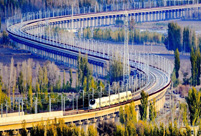 China has world's largest high-speed rail network
China has world's largest high-speed rail network Top beauties in Chinese provinces
Top beauties in Chinese provinces 600 people attend Lusheng playing contest in S China
600 people attend Lusheng playing contest in S China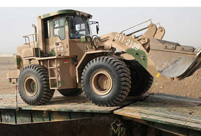 Engineer troop builds bridge in real combat conditions
Engineer troop builds bridge in real combat conditions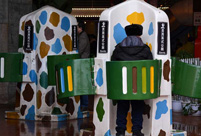 You can urinate in public in Chongqing
You can urinate in public in Chongqing Rice terrace scenery in southwest China's Yunnan
Rice terrace scenery in southwest China's Yunnan 2016 Miss Chinatown USA pageant held in San Francisco
2016 Miss Chinatown USA pageant held in San Francisco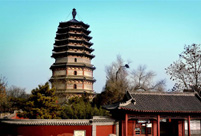 Ancient pagodas across China
Ancient pagodas across China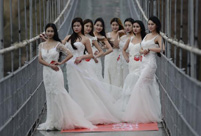 Wedding dress show up in the air
Wedding dress show up in the air Top 20 hottest women in the world in 2014
Top 20 hottest women in the world in 2014 Top 10 hardest languages to learn
Top 10 hardest languages to learn 10 Chinese female stars with most beautiful faces
10 Chinese female stars with most beautiful faces China’s Top 10 Unique Bridges, Highways and Roads
China’s Top 10 Unique Bridges, Highways and Roads Supply side focus of two sessions
Supply side focus of two sessions Joint letter disrespects China’s rule of law
Joint letter disrespects China’s rule of law How the ‘otaku’ lifestyle is helping young people reclaim their health
How the ‘otaku’ lifestyle is helping young people reclaim their health Foreign nationals more confident in pressing IPR charges in China thanks to legal changes
Foreign nationals more confident in pressing IPR charges in China thanks to legal changesDay|Week